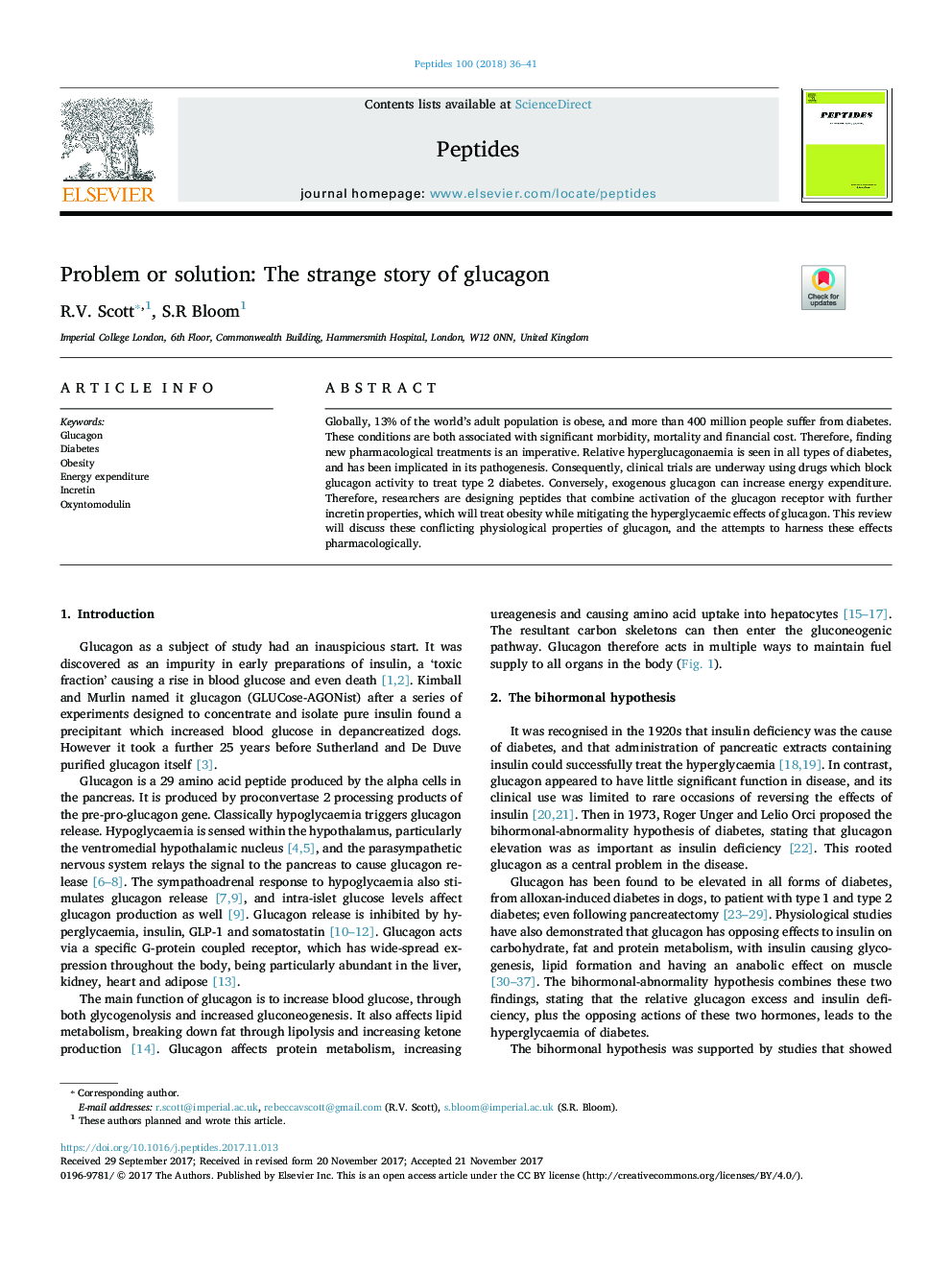| Article ID | Journal | Published Year | Pages | File Type |
|---|---|---|---|---|
| 8347438 | Peptides | 2018 | 6 Pages |
Abstract
Globally, 13% of the world's adult population is obese, and more than 400 million people suffer from diabetes. These conditions are both associated with significant morbidity, mortality and financial cost. Therefore, finding new pharmacological treatments is an imperative. Relative hyperglucagonaemia is seen in all types of diabetes, and has been implicated in its pathogenesis. Consequently, clinical trials are underway using drugs which block glucagon activity to treat type 2 diabetes. Conversely, exogenous glucagon can increase energy expenditure. Therefore, researchers are designing peptides that combine activation of the glucagon receptor with further incretin properties, which will treat obesity while mitigating the hyperglycaemic effects of glucagon. This review will discuss these conflicting physiological properties of glucagon, and the attempts to harness these effects pharmacologically.
Related Topics
Life Sciences
Biochemistry, Genetics and Molecular Biology
Biochemistry
Authors
R.V. Scott, S.R Bloom,
